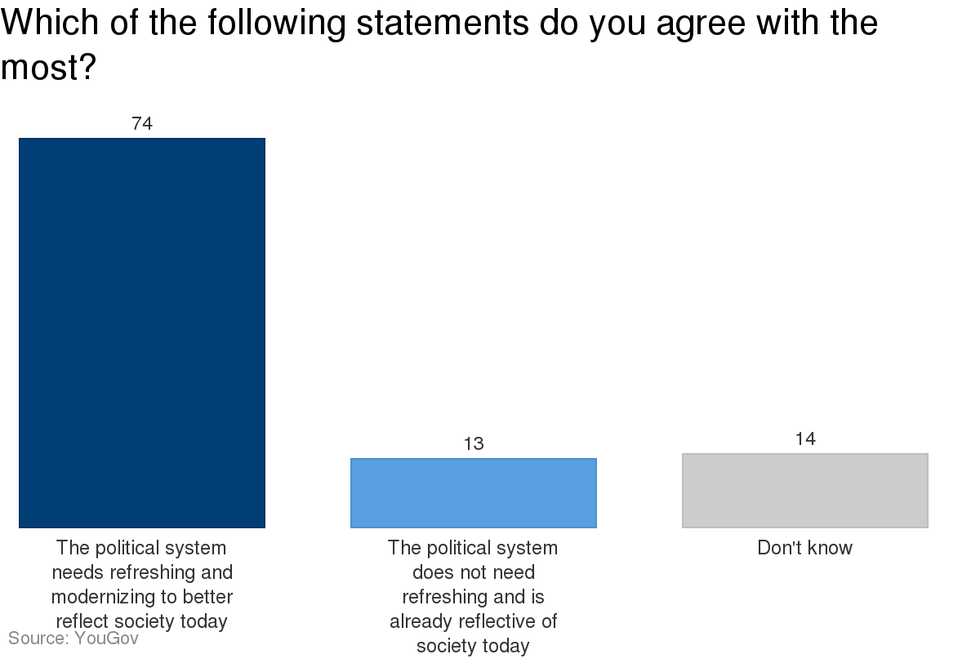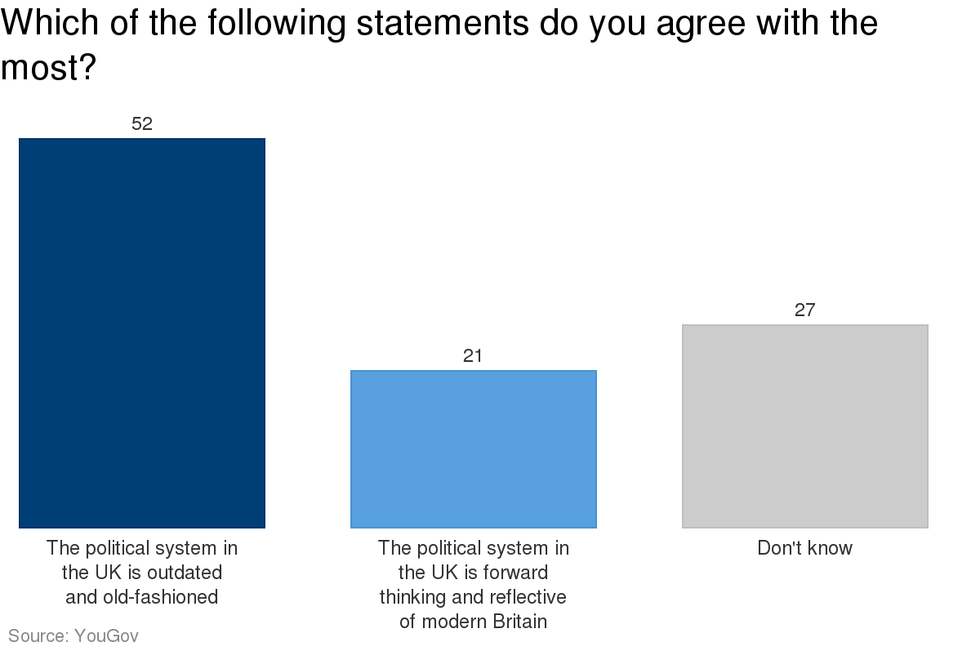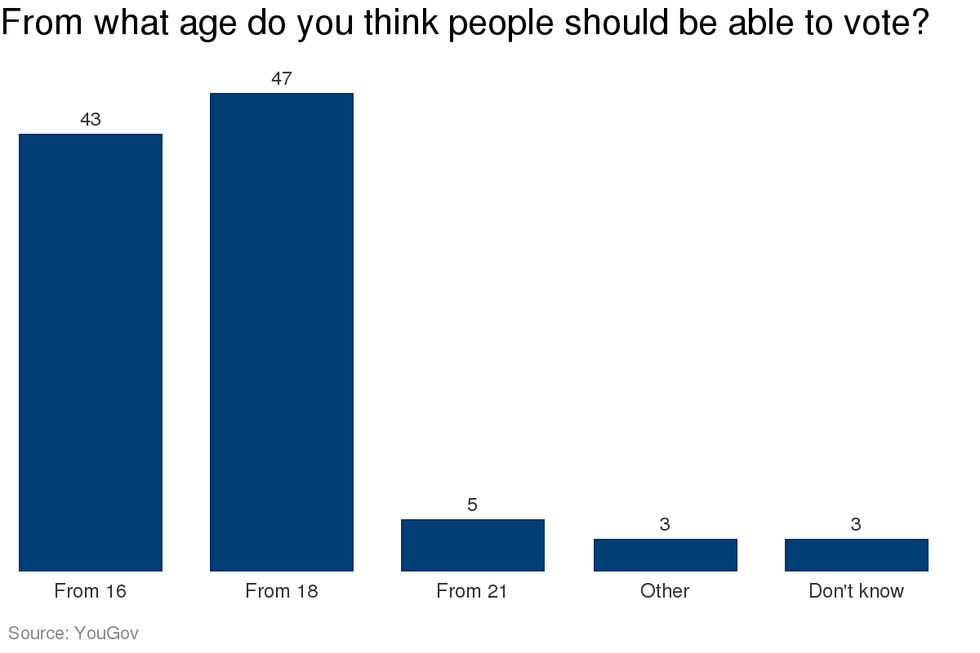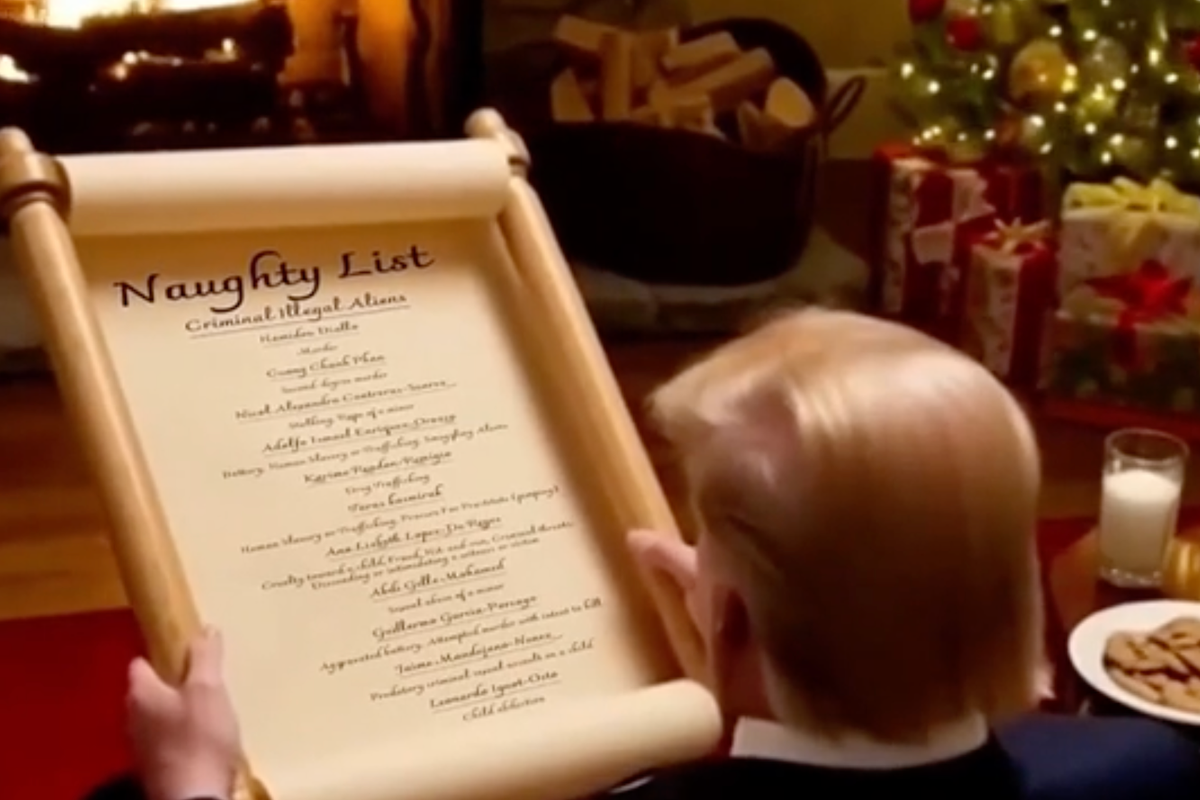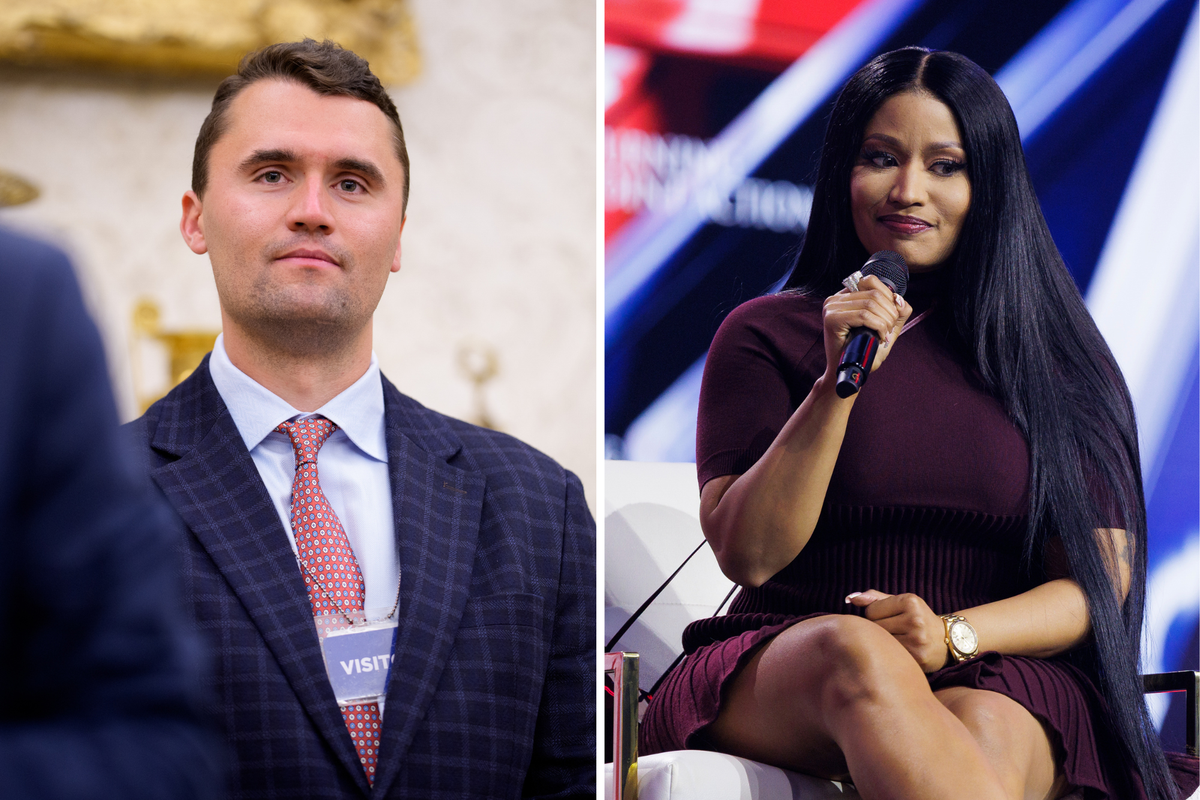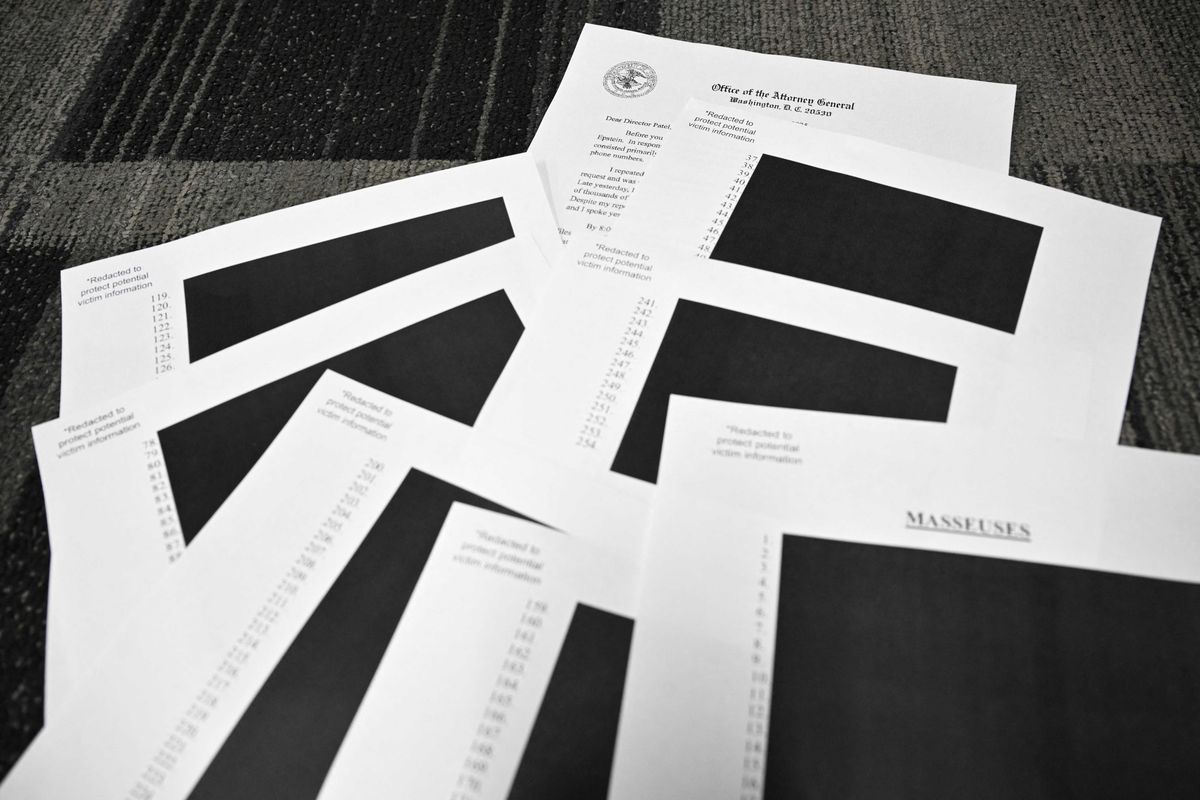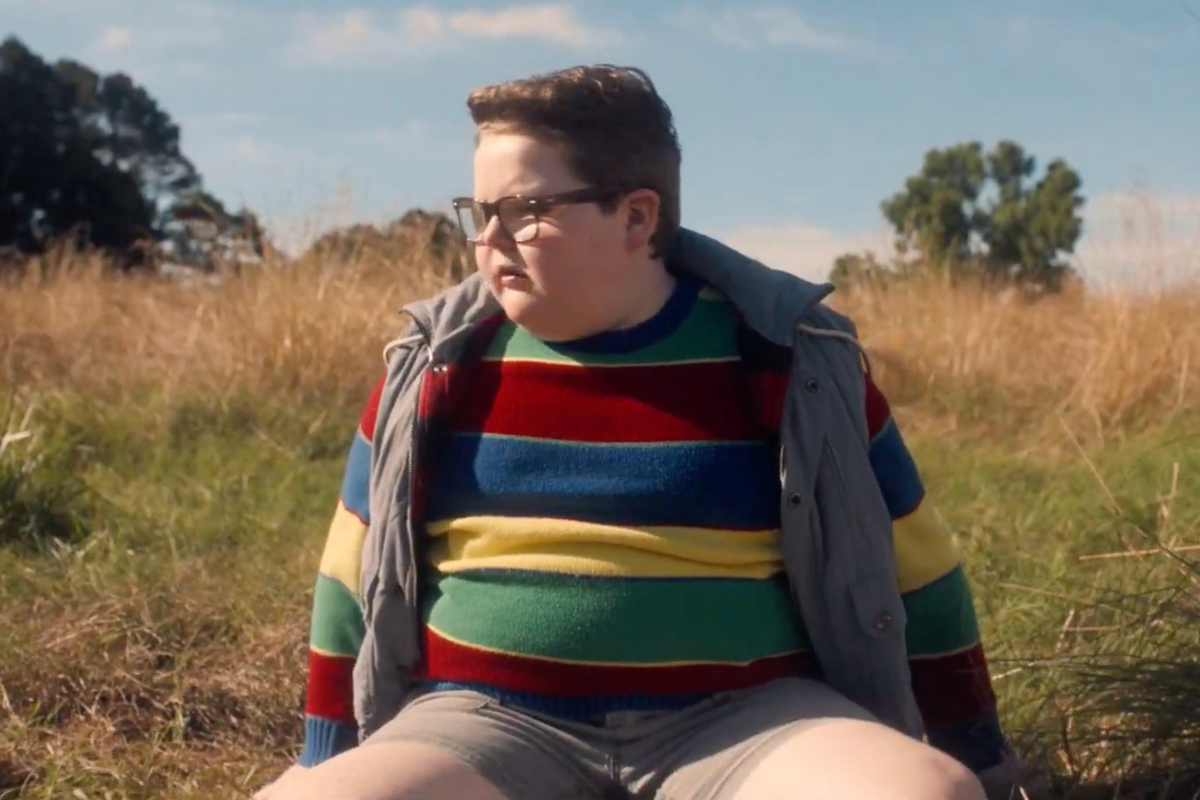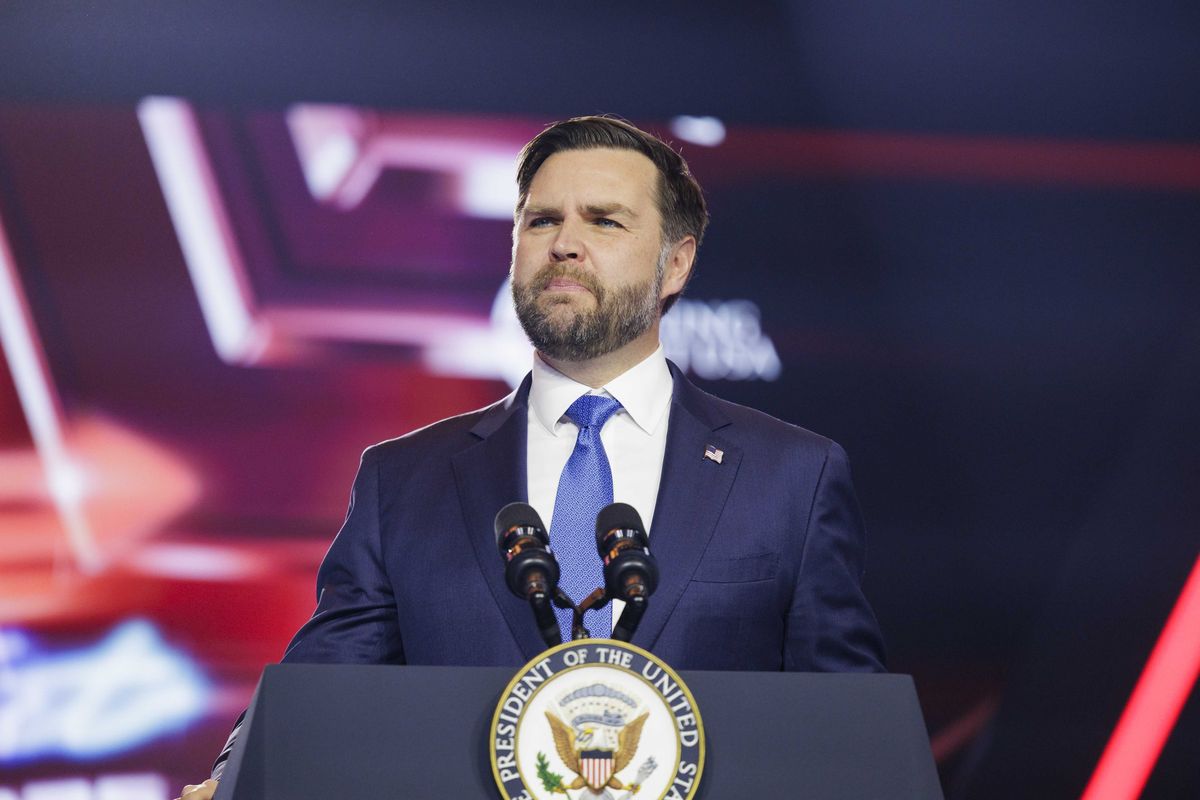News
Indy100 Staff
Mar 02, 2015
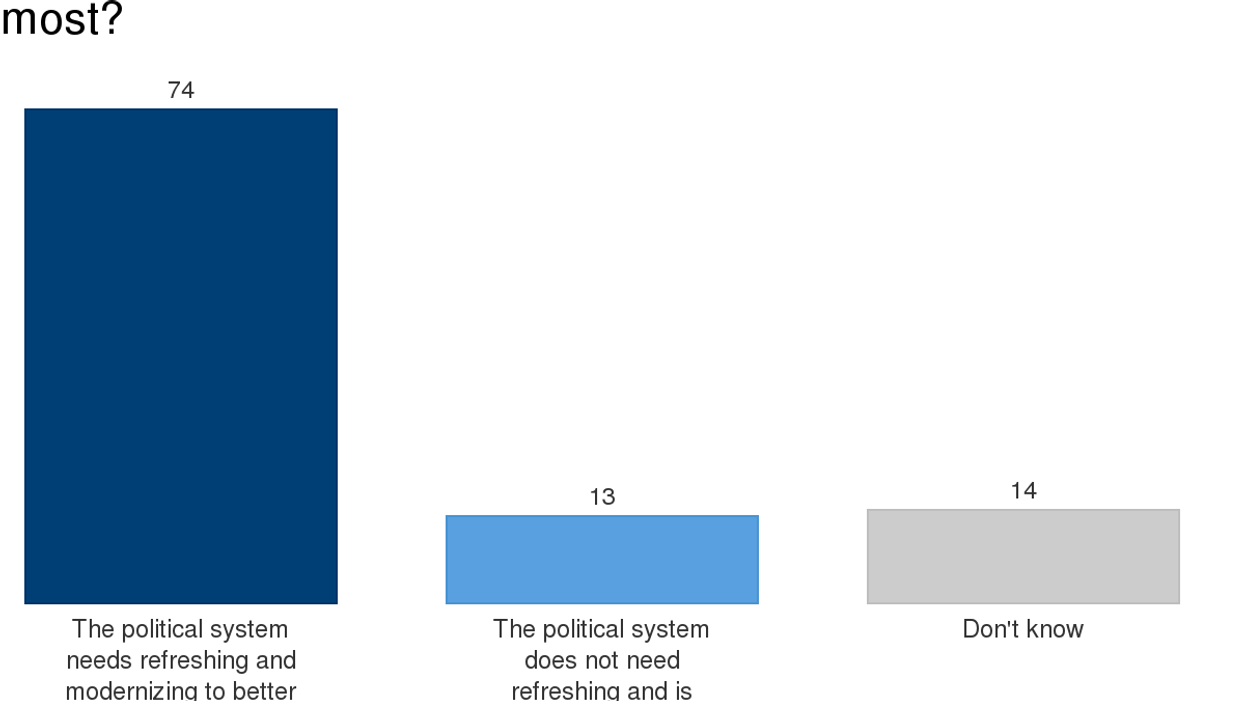
Despite the widely-held belief that young people are apathetic about politics, new research has found that an overwhelming number of 16-18 year-olds do care.
YouGov research for Speakers for Schools, an educational charity supported by the i paper, found three-quarters of British 16-18 year-olds think the current system needs to be rewired to “better reflect society today”.
The figures come as the organisation launches a two week campaign to ignite a conversation about the role young people have in the future of politics.
In the research, 82 per cent say they care about who is in government while just 4 per cent reveal their disinterest in the topic.
A majority of younger people find the current system outdated and old-fashioned:
While most believe we should adopt a more proportional system whereby the total number of MPs a party gets more closely resembles their national share of the vote.
A resounding majority also says that politicians do not effectively communicate with younger people.
Although lowering the voting age would allow younger people an earlier vote, only 43 per cent say it should be lowered to 16, with a majority favouring the current age of 18.
Topping the list of policy priorities among 16-18 year-olds were the NHS, tuition fees and equal opportunities.
Peter Kelner, the president of YouGov, explained that if younger people were more actively involved in politics (it is feared as many as 920,000 people - mostly young people and students - have dropped off the electoral register) then it would send shockwaves through Westminster.
The priorities of 16- to 18-year-olds differ from those of their parents and grandparents. They care more about equal opportunities, the environment and a living wage than issues such as immigration, Europe, crime or welfare benefits.
These findings support the main conclusion of our poll. If the voting age were lowered and online voting allowed, the ripples would spread throughout our political culture – and the grip on government policies of the over-60s, the age group most likely to use their votes, would be greatly weakened.
- Peter Kelner, YouGov president
Over the next fortnight, 30 people from politics, business, science, arts, the military and media will go into state schools for an election special series of talks called Why I Vote.
Giving his thoughts on the study's initials findings, the i paper's editor Oliver Duff noted some interesting alternatives suggested by young people to improve politics.
- Return to traditional campaigning, door-knocking and town hall-style meetings, in people’s workplaces, schools, colleges and community centres. The Scottish Cabinet has successfully done this; travelling around Scotland.
- Allow voting on mobile phones, to improve turnout. They’re secure enough to bank on.
- Make Prime Minister’s Questions interactive, with the public submitting the questions online. Should liven up proceedings a bit.
- Make Parliament reflect how people vote, with a more proportionate system.
Furthermore, he added: "Forget young people for a moment. Do any of the above and all of us might feel more engaged."
You can see YouGov's full results here and find out more about Speakers for Schools here.
Top 100
The Conversation (0)
